
Find Help
More Items From Ergsy search
-

What are the benefits of relationship counselling?
Relevance: 100%
-
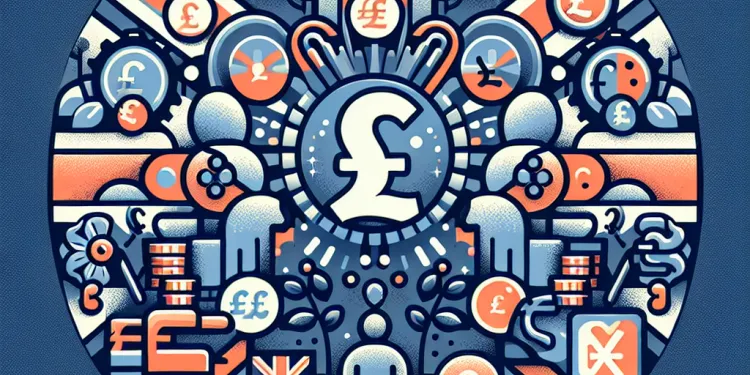
Can relationship problems be resolved to improve mental health?
Relevance: 44%
-
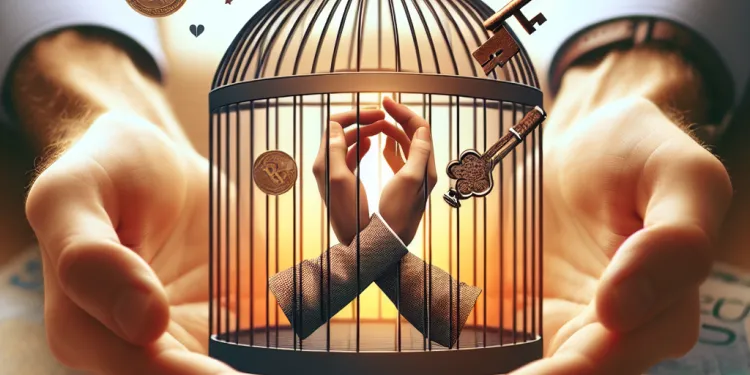
Is it possible to feel trapped in a relationship?
Relevance: 40%
-

Is it better to stay in a relationship for the sake of not being alone?
Relevance: 39%
-
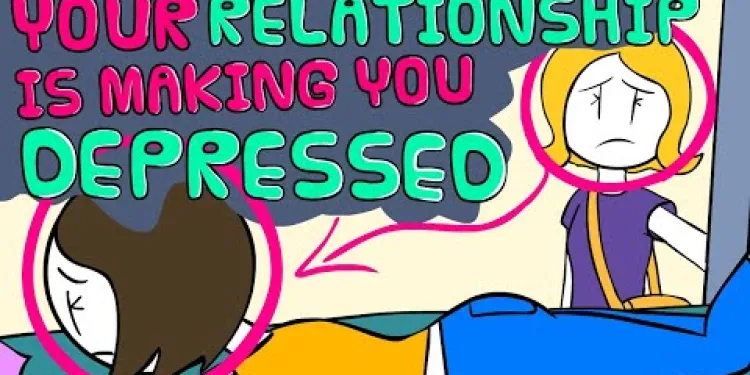
7 Signs Your Relationship is Making You Depressed
Relevance: 39%
-
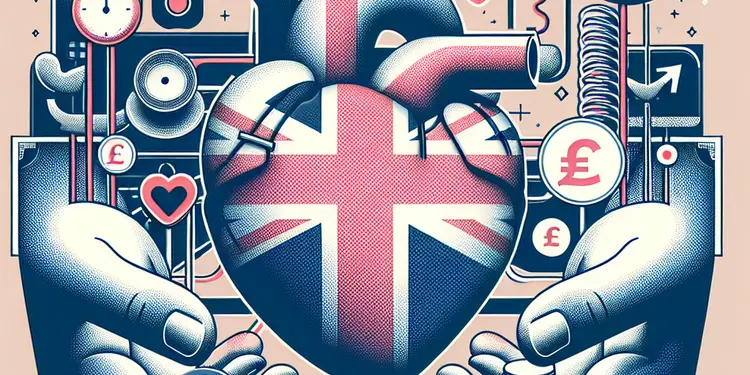
Can health-related anxiety affect relationships?
Relevance: 39%
-

What is the relationship between rising rents and housing benefit cuts?
Relevance: 39%
-

Is it normal to feel sad in a relationship sometimes?
Relevance: 39%
-
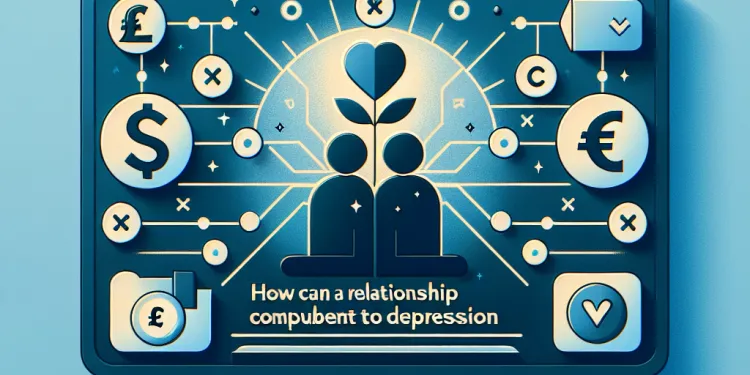
How can a relationship contribute to depression?
Relevance: 38%
-

Can ending a toxic relationship improve my mental health?
Relevance: 37%
-
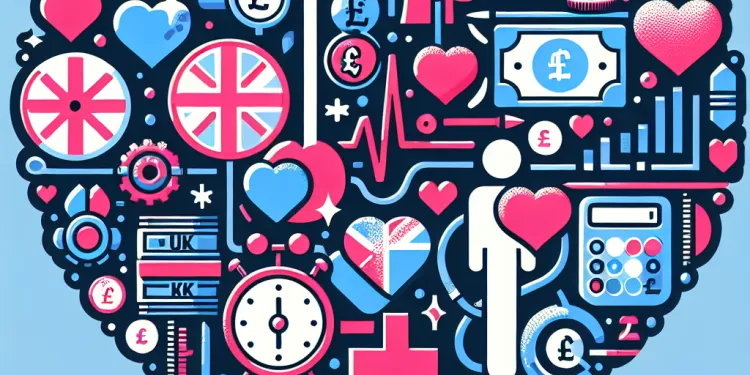
What are the signs that my relationship is making me depressed?
Relevance: 34%
-

How can I rebuild my self-esteem in a challenging relationship?
Relevance: 32%
-
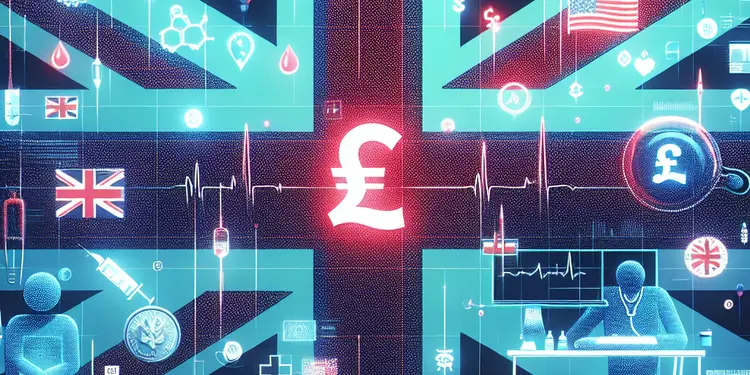
Will accessing my medical records affect my relationship with my healthcare provider?
Relevance: 30%
-
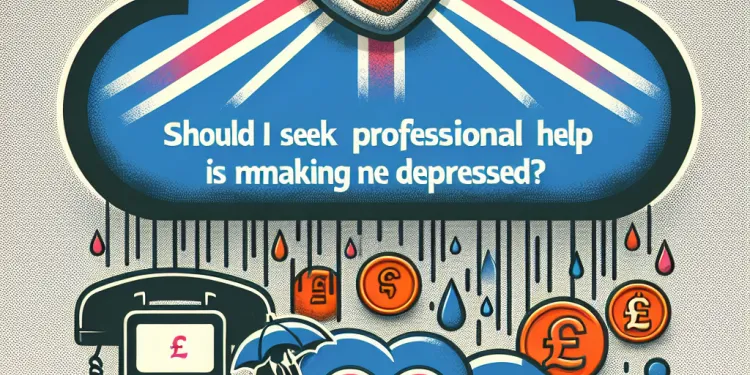
Should I seek professional help if my relationship is making me depressed?
Relevance: 29%
-

The Benefits of Family Activities
Relevance: 25%
-
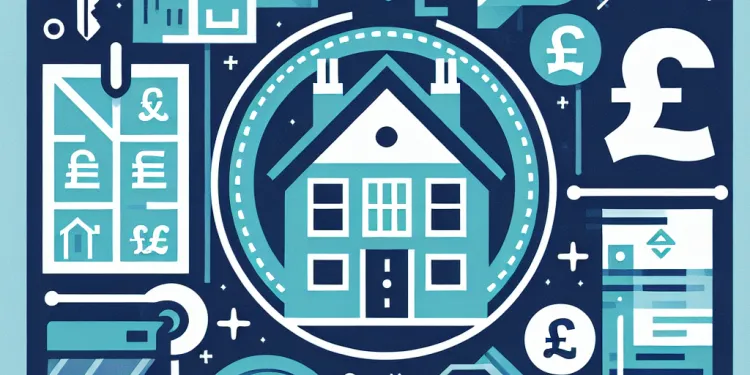
What measures are suggested to substitute the housing benefits?
Relevance: 23%
-

What happens to the pension benefits upon the death of a firefighter?
Relevance: 23%
-
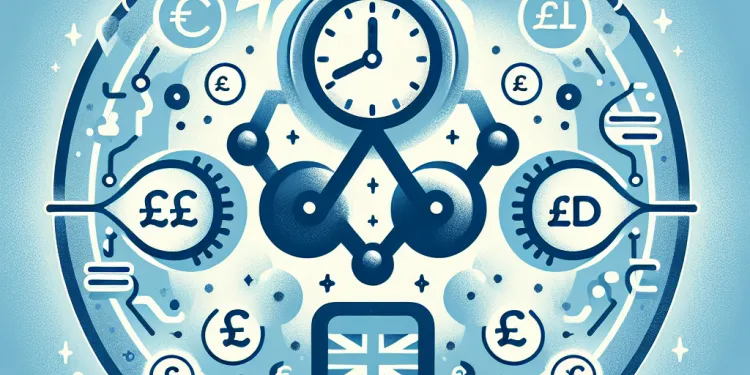
What is the relationship between cortisol and the circadian rhythm?
Relevance: 22%
-
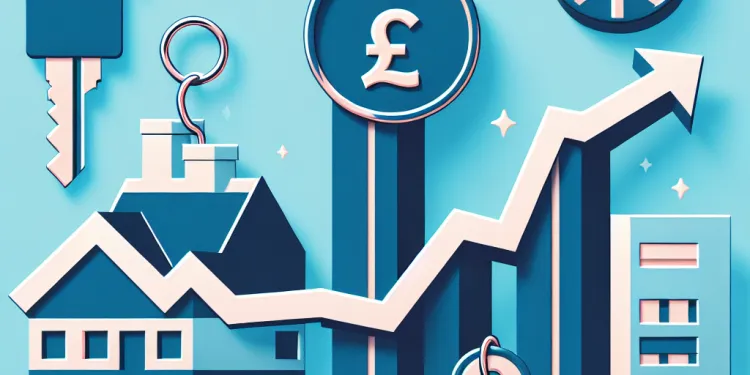
What are the proposed Cuts to Housing Benefits Amid Rising Rents?
Relevance: 21%
-

Are firefighter pension benefits taxable?
Relevance: 21%
-

Can I nominate a beneficiary for my firefighter pension benefits?
Relevance: 21%
-
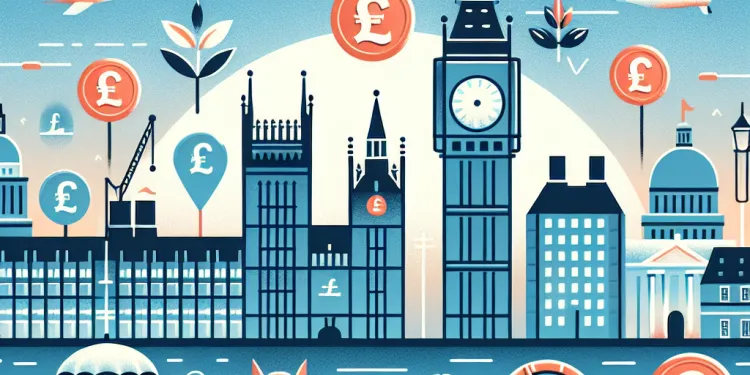
What is a defined benefit pension scheme?
Relevance: 21%
-
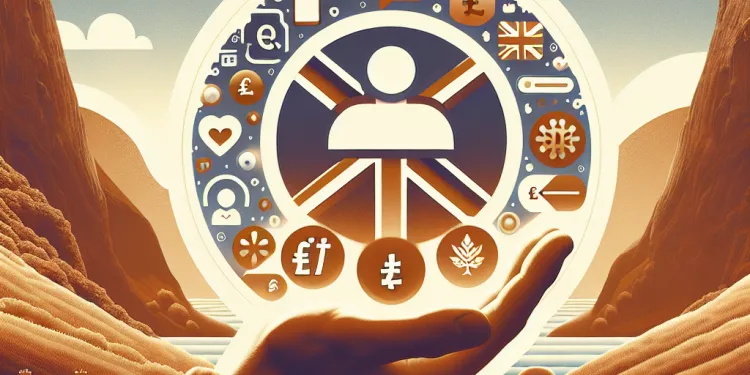
What should I do if my partner dismisses my feelings of depression?
Relevance: 21%
-

What are the potential long-term impacts of housing benefit cuts?
Relevance: 21%
-

What are the potential benefits of CBD?
Relevance: 21%
-

New Government Benefits for Low-Income Families
Relevance: 21%
-

Are there any cardiovascular benefits to using sunbeds?
Relevance: 20%
-

Do seniors receive any tax benefits?
Relevance: 20%
-

Understanding the Benefits of the Mediterranean Diet
Relevance: 20%
-

Are there any health benefits to tanning on sunbeds?
Relevance: 20%
-

What are the benefits of using cryptocurrencies?
Relevance: 20%
-

Are firefighter pension benefits adjusted for inflation?
Relevance: 20%
-

Do mosquito screens provide insulation benefits?
Relevance: 20%
-

What are the benefits of regular mammograms?
Relevance: 20%
-
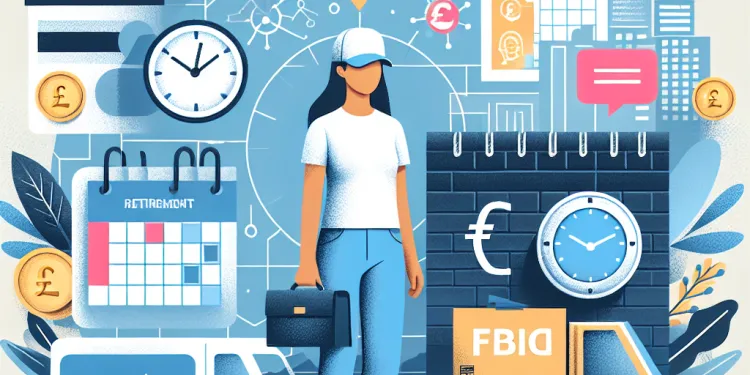
Do gig workers qualify for retirement benefits?
Relevance: 20%
-

Are there health benefits to using cannabis extract?
Relevance: 20%
-

Is it possible to buy additional pension benefits as a firefighter?
Relevance: 20%
-

What are the benefits of a balance transfer credit card?
Relevance: 20%
-

Are there tax benefits for owning an electric car?
Relevance: 20%
-
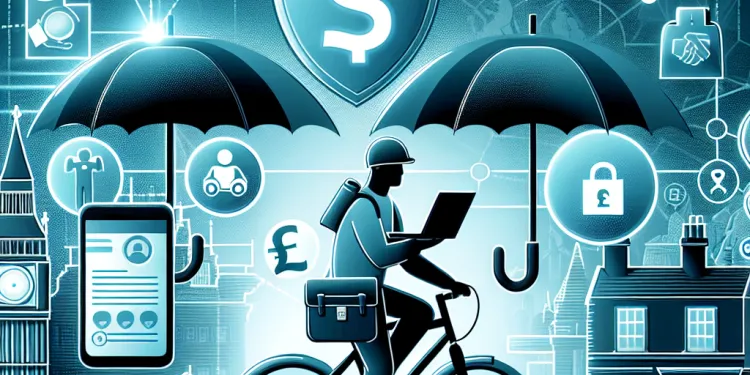
Do gig workers have access to unemployment benefits?
Relevance: 20%
What is Relationship Counselling?
Relationship counselling, also known as couples therapy, is a type of psychotherapy designed to help partners improve their relationship. Whether couples are dating, engaged, or married, counselling provides a neutral space for partners to express themselves and work through any issues that may be affecting their relationship. In the UK, relationship counselling can be accessed through various organisations with trained therapists specialising in guiding couples towards healthier interactions.
Improved Communication
One of the primary benefits of relationship counselling is improved communication skills between partners. Many couples struggle with expressing their thoughts and needs effectively. Counsellors help partners develop healthy communication habits, allowing them to listen actively and respond thoughtfully. With skilled guidance, couples can learn to break negative communication patterns that may have developed over time.
Conflict Resolution
Every relationship encounters conflict at some point, but how couples manage these conflicts significantly impacts the health of the relationship. Relationship counselling offers tools and techniques for effective conflict resolution. Counsellors teach partners to approach disagreements constructively, fostering a more positive environment for resolving differences. This approach helps prevent conflicts from escalating and damaging the relationship further.
Enhanced Emotional Connection
Over time, external factors such as work pressure, family obligations, or personal stressors can lead to a disconnection between partners. Relationship counselling can help couples reconnect on an emotional level by encouraging open dialogue about their feelings, desires, and concerns. This process can help partners understand and empathise with each other's emotional experiences, fostering a deeper emotional connection.
Increased Relationship Satisfaction
By addressing underlying issues and improving communication, many couples find that relationship counselling leads to increased overall satisfaction within the relationship. Partners who feel heard and understood are more likely to be content and fulfilled, leading to a stronger and more resilient partnership. As trust and respect are rebuilt, couples often find they are able to enjoy healthier and more supportive interactions.
Personal Growth
While the primary aim of relationship counselling is to strengthen the relationship, it also encourages personal growth for each partner. Individuals gain insights into their own behaviours and emotions, which can translate into better self-understanding and self-esteem. This growth empowers each partner to contribute positively to the relationship dynamics.
Prevention of Future Issues
Relationship counselling is not only for couples in crisis; it can also serve as a preventative measure to address potential issues before they become serious problems. Regular counselling sessions can help couples navigate life transitions such as moving in together, parenting, or retirement, equipping them with strategies to manage potential challenges effectively.
What is Relationship Counselling?
Relationship counselling is a type of talking therapy for couples. It is also called couples therapy. Couples might be dating, engaged, or married. In counselling, partners talk openly about their problems. This is done in a safe and neutral space. A trained counsellor helps couples communicate better and solve their problems. In the UK, you can find many organisations with expert therapists to help couples.
Improved Communication
One big benefit of relationship counselling is better communication. Many couples find it hard to share their feelings and needs. Counsellors teach couples to talk and listen to each other in a healthy way. This helps them understand each other better. Counsellors show couples how to stop bad ways of talking that cause arguments.
Conflict Resolution
All couples have disagreements. How they solve these disagreements is important. Counselling gives couples tools to solve conflicts better. Counsellors show how to talk about disagreements without making things worse. This helps couples solve problems together and keep their relationship strong.
Enhanced Emotional Connection
Things like work, family, or stress can make couples feel less connected. Counselling helps couples talk about their feelings and worries. This can help them feel closer and understand each other's emotions. This stronger connection helps build a happier relationship.
Increased Relationship Satisfaction
When couples communicate better and solve problems, they feel happier in their relationship. In counselling, partners learn to listen and understand each other. This makes the relationship stronger and more supportive. Couples often feel more trust and respect, leading to a better partnership.
Personal Growth
Relationship counselling also helps each partner grow as a person. Couples learn more about themselves, which can boost their self-esteem. Understanding themselves better helps them contribute positively to the relationship.
Prevention of Future Issues
Counselling is not only for couples with problems. It can also stop problems before they start. Regular sessions can help couples manage big life changes like living together, having kids, or retiring. Counsellors give strategies to handle these changes positively.
Frequently Asked Questions
What are the primary benefits of relationship counselling?
Relationship counselling can improve communication, resolve conflicts, and help partners understand each other better.
Can relationship counselling help with conflict resolution?
Yes, it provides tools and strategies to manage and resolve conflicts in a healthy manner.
Is relationship counselling beneficial for improving communication?
Absolutely, it focuses on enhancing communication skills between partners.
How does relationship counselling enhance emotional intimacy?
It helps partners open up about their feelings, creating a deeper emotional connection.
Can relationship counselling assist in rebuilding trust?
Yes, it offers a safe space to address issues of trust and work towards rebuilding it.
Does relationship counselling provide coping strategies for stressful situations?
Counselling can equip couples with effective coping mechanisms for handling stress together.
What role does relationship counselling play in individual growth?
It encourages self-awareness and personal growth, which can improve the relationship.
Can relationship counselling help prevent future problems?
Yes, by teaching proactive skills, it can help prevent issues from escalating.
How does relationship counselling assist with family dynamics?
Counsellors can help couples navigate family issues and dynamics more effectively.
Is relationship counselling useful for improving listening skills?
Yes, it places a strong emphasis on active listening and understanding your partner’s perspective.
Can relationship counselling help with setting relationship goals?
Counsellors can assist couples in setting and achieving realistic and healthy relationship goals.
Does relationship counselling help couples facing separation or divorce?
Yes, it can help couples come to terms with their issues and make decisions about their future.
Can relationship counselling help in regaining passion in the relationship?
Counselling can address issues that may have dulled the passion and help rekindle it.
What impact can relationship counselling have on parenting?
Improved communication and teamwork can positively influence parenting strategies and family life.
How does relationship counselling address cultural differences?
It provides a platform to openly discuss and understand cultural differences, fostering respect and harmony.
Can relationship counselling help with financial disagreements?
Yes, it can help couples discuss financial issues and set budgets without conflict.
Does relationship counselling offer support for co-parenting challenges?
Counsellors can guide couples in creating effective co-parenting plans and improving cooperation.
Can relationship counselling assist with sexual intimacy issues?
Yes, it provides a safe space to discuss and resolve issues related to sexual intimacy.
How can relationship counselling help couples adjust to major life changes?
It helps partners support each other through transitions like moving, new jobs, or having children.
Is relationship counselling only for couples in crisis?
No, it can benefit any couple looking to strengthen their relationship and prevent future problems.
How can relationship counselling help you?
Relationship counselling can help people who are having problems. Here is how it can help:
- Talking and Listening: You get to talk about your feelings while someone listens and helps.
- Solving Problems: You can learn new ways to fix problems with your partner.
- Understanding Each Other: It helps you and your partner understand each other better.
- Feeling Better: Talking can make you feel happier and less worried.
Tools that can help:
- Bring a notebook to write your thoughts.
- Use drawings to show how you feel.
- Practice deep breathing to stay calm.
Talking to someone about your relationship can help you talk better, fix problems, and understand each other more.
Can talking to a relationship counsellor help solve fights?
Yes, it gives you tools and ways to solve fights in a good way.
Can relationship counselling help people talk better?
Yes, it helps partners talk to each other better.
How can talking to someone help you get closer to your partner?
Talking to a relationship counselor can help you and your partner share feelings better. This can make you feel closer and happier together.
Here are some tips that might help:
- Try to be open and honest about your feelings.
- Listen to each other carefully.
- Use simple words to talk about problems.
- A counselor can help you both understand each other.
If you find reading hard, ask someone to read with you or use tools that read aloud.
It helps people talk about their feelings. This makes them feel closer to each other.
Can talking to a relationship helper fix trust?
Can talking to someone help people trust each other again?
Yes, it is a safe place to talk about trust and learn how to trust again.
Can relationship counselling help you handle stress?
Relationship counselling is talking to someone who can help with problems between people.
It can teach ways to stay calm and deal with stress.
Some tools that might help are:
- Talking about your feelings
- Finding ways to solve problems
- Practicing relaxation techniques like deep breathing
Counselling can make it easier to get through tough times.
Counselling can help couples learn how to deal with stress in a good way.
How can talking to a counselor help you grow?
It helps you understand yourself better and become a better person. This can make your relationships better too.
Can talking to someone about your relationship help stop problems later?
Yes, we can stop problems from getting bigger by teaching people how to solve them early on.
How can talking to someone help with family problems?
Counsellors can help couples work through family problems. They can show them how to get along better with each other and their families.
Can relationship counselling help me listen better?
Relationship counselling can teach you how to be a better listener. Here’s how it can help:
- Counselling teaches you to pay attention when others talk.
- You learn to ask questions if you don’t understand.
- You find out how to show you are listening by nodding or smiling.
Some tools that might help are:
- Workshops for better listening.
- Books with pictures about listening.
- Apps that show listening games.
Yes, it is important to listen carefully and try to see things from your partner’s point of view.
Can talking to someone help make relationship goals?
Talking to someone about your relationship can help you make goals with your partner. Goals are plans for how you want your relationship to be.
Here are some ways talking can help:
- You can share your feelings.
- You can listen to each other.
- You can learn new ways to solve problems.
Some tools to help you talk are:
- Writing down your goals together.
- Using pictures to show your ideas.
- Using a feelings chart to share how you feel.
These tips can make setting goals easier and fun!
Counsellors help couples make and reach good and realistic goals for their relationship.
Can talking to a relationship counselor help couples who might break up or get a divorce?
Yes, it can help people in a relationship talk about their problems and decide what to do next.
Can talking to a relationship helper bring back the spark in a relationship?
Sometimes, couples stop feeling excited or happy together. A relationship helper can talk with both people to help them understand each other better. This can make them feel close again.
Here are some tips to help:
- Talk about your feelings with each other.
- Do fun activities together.
- Be kind and listen to each other.
- Ask a relationship helper if you need more help.
Talking to a counselor can help fix problems. This can bring back the excitement and love.
How can talking to someone help parents?
Talking to a person who helps with relationships can make parents feel better.
When parents feel happy, they can take better care of their kids.
Parents can learn new ways to talk and listen to each other.
This can make the home a nicer place for everyone.
If parents are having a hard time, they can try talking to a friendly expert.
Some parents like to write down their thoughts. This helps them feel calm.
Using pictures or drawings can also help parents understand each other better.
Talking and working together well can help families and make parenting better.
How can talking to a counsellor help with cultural differences in relationships?
This website helps people talk about and learn new things about different cultures. It helps everyone get along better and respect each other.
Can talking to a relationship counselor help with money arguments?
Yes, it can help couples talk about money and make budgets without arguing.
Can relationship counselling help with co-parenting problems?
Relationship counselling can help if you and your child's other parent have problems working together. Counsellors are people you can talk to. They listen and help you find ways to get along better. If you have trouble understanding, you can use tools like drawings or simple words to help explain your feelings.
Counsellors can help parents work together better. They can make plans for taking care of their children.
Can talking to a relationship counselor help with sexual closeness problems?
If you have trouble feeling close with your partner, talking to a counselor might help. A counselor is someone you can talk to about your feelings and relationship. They listen and give advice.
You can try talking to each other about how you feel. Writing down your thoughts can also help. Sometimes drawing pictures can show how you feel.
If you need more help, a counselor can talk to both of you. They can give you ways to feel closer and happier together.
Yes, it is a safe place to talk about and fix problems with sex.
How can talking help couples with big life changes?
Talking to someone can help couples when big things happen in life, like moving to a new place or having a baby.
Here is how talking can help:
- It helps you understand each other better.
- You can share your feelings in a safe space.
- It teaches you to solve problems together.
Using pictures or simple words can make talking easier.
You can also try talking with a helper, like a counselor, who understands you both.
It helps partners support each other during big changes like moving, getting new jobs, or having children.
Is relationship counselling only for couples with big problems?
Counselling is a type of talking therapy. It's a space where people can talk about their feelings and problems.
Relationship counselling is for people in any kind of relationship, not just couples. It can help friends, family members, or workmates too.
You don’t have to wait for a big problem to try counselling. It can help with small problems too. It's a good idea to talk early, before things get worse.
Some tools that might help are talking to a counsellor, writing down your feelings, or using pictures to show how you feel.
No, anyone can use this! It helps couples get stronger and stop problems before they happen.
Useful Links
Have you found an error, or do you have a link or some information you would like to share? Please let us know using the form below.
-->
This website offers general information and is not a substitute for professional advice.
Always seek guidance from qualified professionals.
If you have any medical concerns or need urgent help, contact a healthcare professional or emergency services immediately.
Some of this content was generated with AI assistance. We’ve done our best to keep it accurate, helpful, and human-friendly.
- Ergsy carfully checks the information in the videos we provide here.
- Videos shown by Youtube after a video has completed, have NOT been reviewed by ERGSY.
- To view, click the arrow in centre of video.
- Most of the videos you find here will have subtitles and/or closed captions available.
- You may need to turn these on, and choose your preferred language.
- Go to the video you'd like to watch.
- If closed captions (CC) are available, settings will be visible on the bottom right of the video player.
- To turn on Captions, click settings .
- To turn off Captions, click settings again.
More Items From Ergsy search
-

What are the benefits of relationship counselling?
Relevance: 100%
-

Can relationship problems be resolved to improve mental health?
Relevance: 44%
-

Is it possible to feel trapped in a relationship?
Relevance: 40%
-

Is it better to stay in a relationship for the sake of not being alone?
Relevance: 39%
-

7 Signs Your Relationship is Making You Depressed
Relevance: 39%
-

Can health-related anxiety affect relationships?
Relevance: 39%
-

What is the relationship between rising rents and housing benefit cuts?
Relevance: 39%
-

Is it normal to feel sad in a relationship sometimes?
Relevance: 39%
-

How can a relationship contribute to depression?
Relevance: 38%
-

Can ending a toxic relationship improve my mental health?
Relevance: 37%
-

What are the signs that my relationship is making me depressed?
Relevance: 34%
-

How can I rebuild my self-esteem in a challenging relationship?
Relevance: 32%
-

Will accessing my medical records affect my relationship with my healthcare provider?
Relevance: 30%
-

Should I seek professional help if my relationship is making me depressed?
Relevance: 29%
-

The Benefits of Family Activities
Relevance: 25%
-

What measures are suggested to substitute the housing benefits?
Relevance: 23%
-

What happens to the pension benefits upon the death of a firefighter?
Relevance: 23%
-

What is the relationship between cortisol and the circadian rhythm?
Relevance: 22%
-

What are the proposed Cuts to Housing Benefits Amid Rising Rents?
Relevance: 21%
-

Are firefighter pension benefits taxable?
Relevance: 21%
-

Can I nominate a beneficiary for my firefighter pension benefits?
Relevance: 21%
-

What is a defined benefit pension scheme?
Relevance: 21%
-

What should I do if my partner dismisses my feelings of depression?
Relevance: 21%
-

What are the potential long-term impacts of housing benefit cuts?
Relevance: 21%
-

What are the potential benefits of CBD?
Relevance: 21%
-

New Government Benefits for Low-Income Families
Relevance: 21%
-

Are there any cardiovascular benefits to using sunbeds?
Relevance: 20%
-

Do seniors receive any tax benefits?
Relevance: 20%
-

Understanding the Benefits of the Mediterranean Diet
Relevance: 20%
-

Are there any health benefits to tanning on sunbeds?
Relevance: 20%
-

What are the benefits of using cryptocurrencies?
Relevance: 20%
-

Are firefighter pension benefits adjusted for inflation?
Relevance: 20%
-

Do mosquito screens provide insulation benefits?
Relevance: 20%
-

What are the benefits of regular mammograms?
Relevance: 20%
-

Do gig workers qualify for retirement benefits?
Relevance: 20%
-

Are there health benefits to using cannabis extract?
Relevance: 20%
-

Is it possible to buy additional pension benefits as a firefighter?
Relevance: 20%
-

What are the benefits of a balance transfer credit card?
Relevance: 20%
-

Are there tax benefits for owning an electric car?
Relevance: 20%
-

Do gig workers have access to unemployment benefits?
Relevance: 20%


